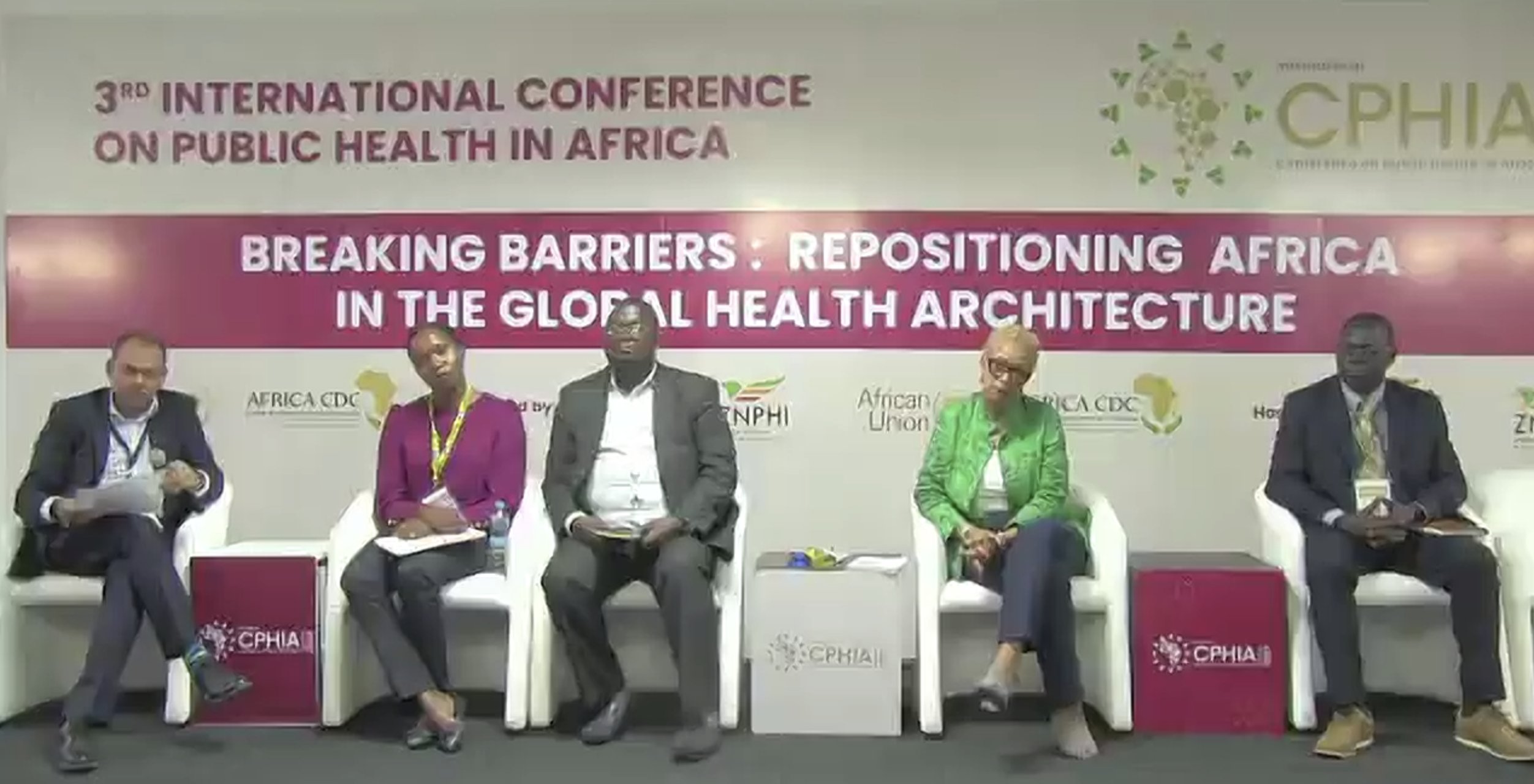
African public health officials, key implementers, and other stakeholders reviewed progress and lessons from COVID-19 test-and-treat programs November 27 at an official side event of the 3rd annual International Conference on Public Health in Africa, held in Lusaka, Zambia. Many organizations, including co-hosts the COVID Treatment QuickStart Consortium, Africa Centres for Disease Control and Prevention (Africa CDC), the US Agency for International Development (USAID), and Zambia Ministry of Health, have been working to accelerate access to COVID-19 treatments.

Since July 2022, the QuickStart Consortium, comprising Duke University, the Clinton Health Access Initiative, Americares, and the COVID Collaborative, has partnered with ten country ministries of health to create access to testing and treatments for COVID-19. In addition to ensuring availability of therapeutics, the consortium supports clinical guidelines development, standing up testing and delivery sites, and training health workers. Supported by Pfizer, the Conrad N. Hilton Foundation, and the Open Society Foundations, the QuickStart consortium has enabled access to nirmatrelvir/ritonavir by more than 1,500 individuals across Africa for treatment of COVID-19. Further, with leadership from ministries of health, the program is making progress toward establishing in-country test-and-treat capabilities that can be applied to multiple health challenges. USAID is also spearheading a test-and-treat pilot project in ten countries with the aid of ministries of health, civil society, and international organizations, while the Africa CDC has issued treatment guidelines and undertaken cost-effectiveness analyses to inform policy decisions.
In his opening remarks for the sessions, Professor Lloyd Mulenga, director of infectious diseases for the Zambia Ministry of Health, noted that the QuickStart Consortium’s support, including the donation of nirmatrelvir/ritonavir, allowed Zambia to quickly provide access to testing and treatment in a range of facilities as the country struggled both with continuing acute COVID-19 cases and long COVID. The test-and-treat model developed by the consortium will reach beyond COVID-19 and provide systems strengthening and avenues for accelerating new product introduction, he added.

In a discussion on introducing innovative health products during an emergency, Nyuma Mbewe, case management specialist for the Zambia National Public Health Institute, noted the importance of engaging local leadership–including provincial health directors, chiefs, and traditional healers–and working in local languages to facilitate introduction and uptake. Givemore Mafunga of the Africa Medical Supplies Platform cited the initial scramble on the continent for resources and supplies and the advantages of establishing a pooled procurement structure. In developing an effective health emergency response, Desta Lakew, group director of partnerships and external affairs for Amref Health Africa, highlighted the importance of strong health systems that include adequately trained and compensated community health workers, real time data, collective engagement, and multisectoral collaboration. Justice Nonvignon, head of health economics for the Africa CDC, commented on a “bitter lesson” learned from economic analyses associated with COVID vaccines: development of cost effectiveness data and modeling was too slow to be of use to countries.
Participants also highlighted the importance of understanding specific cultural contexts when launching a new program, the value of ongoing operational research with local evidence to develop trust around a new product, and developing partnerships across a range of actors. Recommendations included documenting the lessons of COVID-19 response, perhaps through national public health institutes, generating more domestic investment for health systems, improving research on behavior change, and prioritizing local manufacturing and supplies.

In a session on implementation and integration of test-and-treat programs, Norman Lufesi, program manager for the Malawi Ministry of Health, discussed integrating COVID-19 test-and- treat with activities related to an ongoing cholera outbreak. By combining those programs, the country was able to create government structures and training institutions and develop a case management pillar to synthesize available knowledge and make recommendations to the ministry. Paa Kobina Forson, technical director for Jhpiego in Ghana, a USAID test-and-treat partner, said main enablers of program implementation included strong collaboration with government stakeholders and rapid health workforce training before drugs became available. Also key was demand generation through the media. A current challenge is determining government interest and resources to sustainably scale up the program, he added. Claude Muvunyi, general director of the Rwanda Biomedical Center, said as with other countries, Rwanda distributed COVID-19 treatments through community health workers using the same system they use to acquire any drugs.
George Siberry, medical officer and senior technical advisor at USAID and a key leader of USAID’s COVID-19 response team, cited several cross-border learnings including that stronger health systems have the ability to adopt new models more readily. He said countries should use the time between crises to strengthen systems including community reach and connections with private sector pharmacies. As to challenges, Siberry said they could see some benefit of using HIV clinics to distribute COVID-19 treatments but said limiting to that avenue would risk missing the elderly population, which is at higher risk of adverse outcomes from COVID-19.
The full video from this discussion will be available in the coming days. The QuickStart consortium will continue its operational research to develop and share insights on new product introduction as well as implementation and integration of test-and-treat capabilities into health systems around the world.
